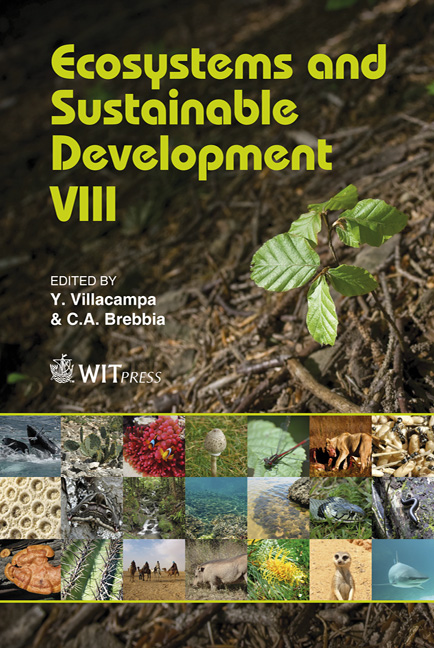Central Baltic Sea Herring: Effect Of Environmental Trends And Fishery Management
Price
Free (open access)
Transaction
Volume
144
Pages
12
Page Range
69 - 80
Published
2011
Size
2,025 kb
Paper DOI
10.2495/ECO110061
Copyright
WIT Press
Author(s)
R. Aps, M. Fetissov, N. Holmgren, N. Norrström & S. Kuikka
Abstract
Uncertainty is an endemic condition of the Baltic Sea herring (Clupea harengus membras, L) fishery management. It is a condition exacerbated by the fishing fleet overcapacity and consequent exploitation of the herring stock at a level believed to be unsustainable. Some sources of uncertainty are mainly related to biology and fishing technique: the unsolved problem of herring assessment and management units, the recruitment–environment relationship and the reduction in mean weights-at-age, uncertain ageing of fish, the problem of unaccounted fishing mortality caused by the fish selection through the trawl net. Fishing fleet overcapacity is believed to be behind of the regulatory overfishing when setting the Total Allowable Catches (TACs) higher than the scientific advice (decision overfishing) and tolerating the extensive underreporting of catches (implementation overfishing). Two scenarios for the Central Baltic Sea herring fishery management options are constructed and the Bayesian networks are used to represent and update uncertainties encountered in the process of the management related situation assessment. First scenario represents the current status of the fishery management resulting in fishing mortality (F) higher than FMSY – the fishing mortality that corresponds to the Maximum Sustainable Yield (MSY). The second scenario demonstrates the assumed potential impact of economic incentives (e.g. zoning, individual transferable quotas (ITQs), territorial use rights etc.) on the reduction of excessive fishing capacity and bringing actual fishing mortality closer to FMSY. Keywords: Central Baltic Sea herring, fishery management, Bayesian belief network, management scenario simulation, uncertainty communication.
Keywords
Central Baltic Sea herring, fishery management, Bayesian belief network, management scenario simulation, uncertainty communication





